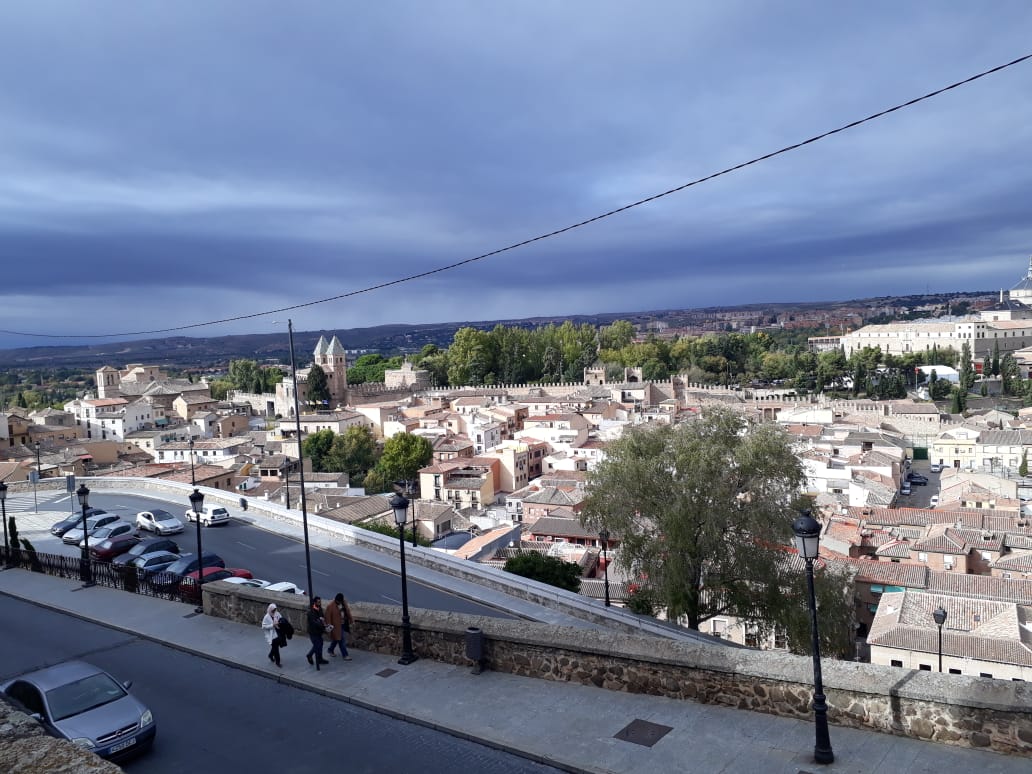A Importância de serviços de alimentos e bebidas em locais de coworking
Nao possui
DOI:
https://doi.org/10.29149/mtr.v4i2.5482Palavras-chave:
coworking, millennials, alimentos e bebidasResumo
Este artigo tem como objetivo analisar os espaços de coworking que oferecem serviços de alimentos e bebidas, na cidade de São Paulo, procurando entender como a oferta desses serviços de alimentação podem agregar mais valor à empresa. Os coworkings têm um formato de trabalho onde seus usuários compartilham da mesma sala com objetivos profissionais, sendo considerado um novo modelo de organização de trabalho. Por afetar no estilo de vida das pessoas, alguns coworkings enxergaram uma oportunidade de negócio oferecer outros serviços dentro destes espaços, como, alimentação e bebidas para promover e aumentar a atratividade do seu ambiente. O presente trabalho é uma pesquisa qualitativa com intuito de estudar o impacto que a oferta de serviços de alimentos e bebidas podem ter na geração de receita de coworkings quando ofertam este serviço. Optou-se por aplicar o método de estudos de casos múltiplos a fim de entender essas novas organizações de trabalho que está se formando nas cidades, onde três empresas que oferecem estes serviços foram escolhidas para as entrevistas com os seus respectivos gerentes. Analisando as repostas dos entrevistados a pesquisa concluiu que a oferta desses serviços torna os coworkings mais atrativos para os seus consumidores e potenciais usuários.
Referências
BARDIN, Laurance. História e teoria. Análise de conteúdo, p. 11-46, 1997.
BITELLI, Fábio Molinari; BASTOS, Sênia Regina. Hospitalidade na cidade: as manifestações culturais como uso do espaço público. Turismo-Visão e Ação, v. 20, n. 3, p. 460, 2018.
BORTOLOTTE, Erica Ana Alves. Economia compartilhada como promotora de hospitalidade em centro urbanos. 2018. Dissertação de Mestrado. Universidade Anhembi Morumbi.
CAPDEVILA, Ignasi. Co-working spaces and the localised dynamics of innovation in Barcelona. International Journal of Innovation Management, 2015.
COHEN, Boyd; KIETZMANN, Jan. Ride on! Mobility business models for the sharing economy. Organization & Environment, v. 27, n. 3, p. 279-296, 2014.
COWORKINGBRASIL. Censo Coworking Brasil 2018. Disponível em: < https://coworkingbrasil.org/censo/2018/>. Acesso em: 12 set. 2018.
CHIUZI, Rafael Marcus; GONÇALVES PEIXOTO, Bruna Ribeiro; LORENZINI FUSARI, Giovanna. Conflito de gerações nas organizações: um fenômeno social interpretado a partir da teoria de Erik Erikson. Temas em Psicologia, v. 19, n. 2, 2011.
CUNHA, Maria Alexandra et al. Smart Cities: Transformação digital de cidades. 2016
DA SILVEIRA, Lisilene Mello; PETRINI, Maira; DOS SANTOS, Ana Clarissa Matte Zanardo. Economia compartilhada e consumo colaborativo: o que estamos pesquisando?. REGE-Revista de Gestão, v. 23, n. 4, p. 298-305, 2016.
DA SILVEIRA, Lisilene Mello; PETRINI, Maira; DOS SANTOS, Ana Clarissa Matte Zanardo. Economia compartilhada e consumo colaborativo: o que estamos pesquisando?. REGE-Revista de Gestão, v. 23, n. 4, p. 298-305, 2016.
DE KOVEN, Bernard. The coworking connection. http://www. deepfun. com/the-coworking-connection/> v. 21, n. 06, p. 2015, 2013.
DOS SANTOS, Daniela Souza; JOHNSTON, David Martin Martin. Um estudo sobre atributos consequências e valores relacionados ao consumo colaborativo1.
GIANNELLI, Márcio Augusto. Coworking: O porquê destes espaços existirem. São Paulo: Universidade São Judas Tadeu, 2016.
GIL, Antonio Carlos. Métodos e técnicas de pesquisa social. 6. ed. Ediitora Atlas SA, 2008.
GREENBERG, Eric H.; WEBER, Karl. Generation we: How millennial youth are taking over America and changing our world forever. Pachatusan, 2008.
HOWE, Neil; STRAUSS, William. The next 20 years: how customer and workforce attitudes will evolve. Harvard business review, 2007, 85.7-8: 41-52, 191.
KUPPERSCHMIDT, Betty R. Tips to help your recruit, manage, and keep generation x employees. Nursing management, v. 31, n. 3, p. 58, 2000.
LEFORESTIER, Anne. The co-working space concept. CINE Term project, 2009.
LIPKIN, Nicole A.; PERRYMORE, April. A Geração Y no trabalho: como lidar com a força de trabalho que influenciará definitivamente a cultura da sua empresa. Elsevier, 2010.
LOMBARDÍA, Pilar García; STEIN, Guido; PIN, José Ramón. Politicas para dirigir a los nuevos profesionales–motivaciones y valores de la generacion Y. Documento de investigación. DI-753, 2008
LUMLEY, Risa M. A Coworking project in the campus library: supporting and modeling entrepreneurial activity in the academic library. New Review of Academic Librarianship, v. 20, n. 1, p. 49-65, 2014.
MARKUS, Kleber; DE OLIVEIRA ORSI, Daniella Fernandes. Um estudo do consumo colaborativo no Brasil e nos Estados Unidos da América. Revista Organizações em Contexto, v. 12, n. 24, p. 117-129.
MORISET, Bruno. Building new places of the creative economy. The rise of coworking spaces. 2013.
POHLER, N. Getting rid of coworker exploitation, Deskmag. Accessed February 1, 2016. 2012.
PRENSKY, Marc. Nativos digitais, imigrantes digitais. On the horizon, v. 9, n. 5, p. 1-6, 2001.
RAINES, Claire. Managing millennials. Connecting Generations: The Sourcebook, v. 16, 2002.
SOLOMON, M. Os segredos da mente dos consumidores. Centro Atlântico, 2009.
SPINUZZI, Clay. Working alone together: Coworking as emergent collaborative activity. Journal of Business and Technical Communication, v. 26, n. 4, p. 399-441, 2012.
TAPSCOTT, Don. Geração digital. A crescente e irreversível ascensão da Geração, 1999.
TAVARES BEZERRA, Leandro; FERNANDES FERREIRA, Lissa Valeria. TURISMO, VIAGEM E ECONOMIA COMPARTILHADA: AS EXPERIÊNCIAS RELATADAS PELOS USUÁRIOS DO COUCHSURFING EM NATAL/RN. Turismo: Visão e Ação, v. 20, n. 3, 2018.
TOMAZ, Renata. A geração dos Millennials e as novas possibilidades de subjetivação. Revista Communicare, 2013, 13: 99-110.
WADA, Elizabeth Kyoko et al. As necessidades da geração Y no cenário de eventos empresariais. Contribuiciones a la Economia, 2010.
WWF, Global Footprint Network; GFN, ESA. Living planet report 2012: biodiversity, biocapacity and better choices. Gland: WWF International, 2012.
YIN, R. Estudo de caso: planejamento e métodos. 3. ed. Porto Alegre: Bookman, 2006
Downloads
Publicado
Como Citar
Edição
Seção
Licença
Autores que publicam nesta revista concordam com os seguintes termos:
- Autores mantém os direitos autorais e concedem à revista, sem ônus para a mesma, o direito de primeira publicação, com o trabalho simultaneamente licenciado sob a Licença Creative Commons Attribution que permite o compartilhamento do trabalho com reconhecimento da autoria e publicação inicial nesta revista
- Autores têm autorização para assumir contratos adicionais separadamente, para distribuição não-exclusiva da versão do trabalho publicada nesta revista (ex.: publicar em repositório institucional ou como capítulo de livro), com reconhecimento de autoria e publicação inicial nesta revista.
- Autores assumem exclusiva responsabilidade pelas suas opiniões emitidas nos trabalhos publicados nesta revista
















